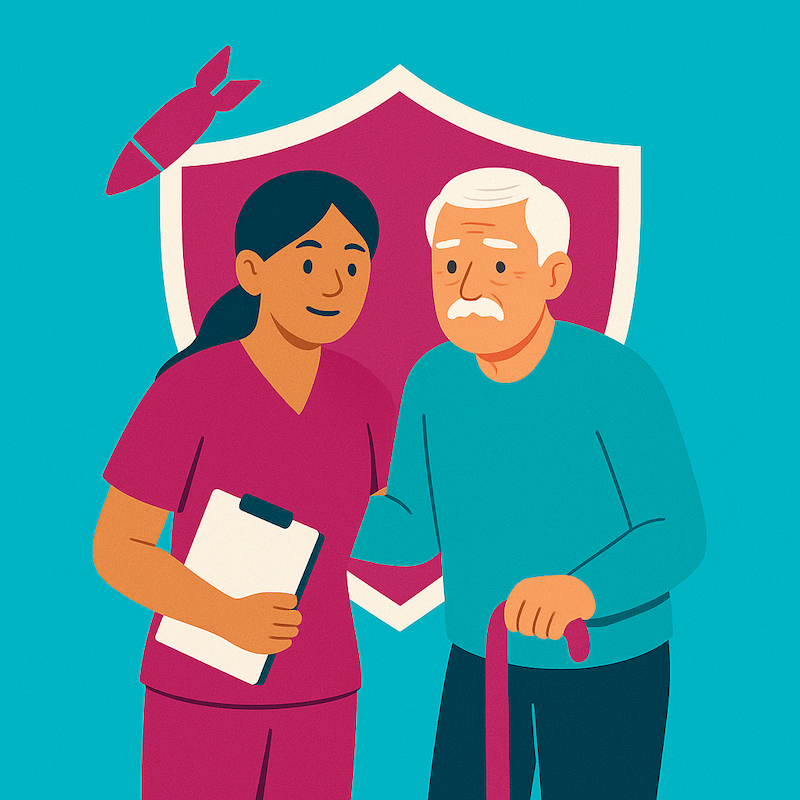The Other Side of Dementia: 5 Signs You Wish You Knew
iSavta | 12.11.2020
As a caregiver, you need to learn more about Dementia. If you are caring for a senior patient with Dementia, you might only equate it to memory loss or frequent forgetfulness. But there is another side of Dementia and that we will be listing down 5 signs you wish you knew about it.

First, What is Dementia?
According to the US National Institute of Aging, “Dementia is the loss of cognitive functioning—thinking, remembering, and reasoning—and behavioral abilities to such an extent that it interferes with a person's daily life and activities.”
Dementia is an umbrella term that transcends many diseases and ailments. The functions that are affected include language skills, memory, visual perception, self-management, problem-solving, and the ability to focus. Some with dementia are seen to have changed because they cannot seem to control their emotions.
There are different kinds of Dementia like Alzheimer's disease, Frontotemporal disorders, Lewy body dementia, and Mixed Dementia. It also ranges from the mildest stage to the most severe. It greatly affects people age 85 or older but is not limited to this age range.
5 Signs of Dementia that Will Surprise You
1. Memory Loss
Memory is usually the first one to go. In the early stage of Dementia, it can be anything from forgetting where they park, forgetting their house keys, or if they already took their daily medication.
As a caregiver, these can be attributed to aging but as Dementia is into the later stages, there will come to a point that they will forget their own children or spouses. This is very sad for some families because it is difficult for them to accept that their parents have forgotten who they are. But of course, it is not them but the Dementia that is talking.
With Dementia, memory loss is sometimes surprising and shocking to the point that in some days they are back to their normal selves. The inconsistency of the memory loss is something that you also have to prepare for.
2. Problems with Dealing with Reality and Otherwise
Paranoia, delusion, and hallucinations may be a part of their daily lives. They might see, hear, and talk to people who are not there. They might even talk to objects because they feel that they are alive.
Memory loss can also add to their fears and insecurity. Be very aware that they might try to escape from “strangers” because they don’t recognize a single face.
There are some patients that might be brought back to their traumatic experiences and that they might associate you or their spouses or other family members to be their enemies and hurt them or be violent towards them. This can be a problem so be ready when this time comes.
3. Emotional Issues
Dementia patients may feel frustrated that they cannot remember important things or people around them. Also, the feeling of losing a part of themselves slowly to the disease is gnawing at them and might add to their depression and stress.
This might result in frequent mood swings and emotional changes. Always remember that you are there to help and it is not about you but because of the Dementia.
4. Insomnia
Lack of sleep and other sleep problems may arise. This will cause a problem with you too because it will cause you to stay up and take care of them. They might have night terrors, wake up frequently, and may refuse to sleep. The lack of sleep can also increase irritability, confusion, and increase risks of falls and injuries. You can try giving them a sleep sanctuary with their preferred lighting or you can have them do activities during the day instead of frequent day naps.
5. Urination and Defecation Problems
Aside from the inability to control their bladder, remember that Dementia patients are having a hard time recognizing the urge of going to the bathroom. It also adds to this difficulty that they do not know what to do about it. Just prepare for these emergencies and always help them with their dignity intact.
You might feel that Dementia is weighing you down as a caregiver. But think about how your senior patient and how it makes them feel every day. It must be a rollercoaster of emotions and feelings every single day. Start with caring and add a ton of understanding.











